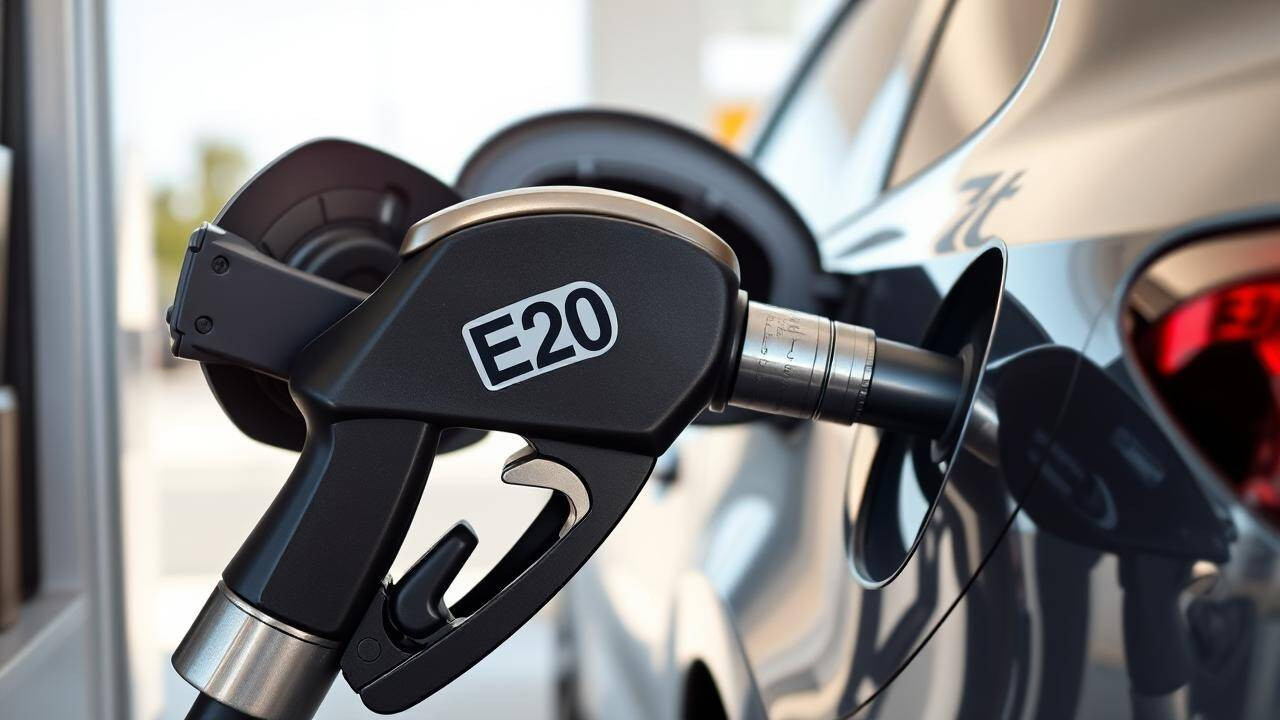India’s nationwide rollout of E20 fuel, a petrol blend with 20% ethanol, has triggered public anxiety due to concerns about its impact on older vehicles, as many manuals only recommend E5 or E10.
Is Your Car Ready for the E20 Fuel Revolution? What You Need to Know
The world of fuel is changing. We’re not just talking about fluctuating prices at the pump; we’re talking about a fundamental shift in what goes into your gas tank. India is pushing hard to embrace E20 fuel, a blend of 20% ethanol and 80% gasoline, and while the long-term goals are laudable – a greener environment and reduced reliance on imported oil – the transition isn’t without its bumps in the road. Many vehicle owners are rightfully asking: will this new fuel harm my car? Let’s dive into the specifics.
The Promise and the Purpose of E20 Fuel
The government’s push for E20 isn’t a whim; it’s a strategic move with several important benefits. First and foremost is the environmental angle. Ethanol, derived from renewable sources like sugarcane and corn, is considered a cleaner-burning fuel than traditional gasoline. Using it reduces greenhouse gas emissions, contributing to a healthier planet.
Secondly, E20 offers a way to decrease India’s dependence on crude oil imports. By blending gasoline with domestically produced ethanol, the nation can strengthen its energy security and save valuable foreign exchange. This is a crucial step towards self-reliance in the energy sector.
Finally, supporting the ethanol industry bolsters the agricultural sector, providing a boost to farmers and rural economies. It’s a multi-pronged approach with positive ripple effects across various segments of the Indian economy. But these benefits don’t automatically translate to a smooth transition for vehicle owners.
Concerns in the Driver’s Seat: Will E20 Damage My Car?
While the potential benefits of E20 are clear, a primary concern revolves around its compatibility with existing vehicles. Ethanol, while cleaner-burning, is also a solvent and can be corrosive to certain materials commonly found in older cars. Specifically, rubber and plastic components in fuel systems are susceptible to degradation when exposed to higher concentrations of ethanol.
This degradation can lead to fuel leaks, clogged fuel filters, and even engine damage in the long run. Vehicle owners are worried, and rightfully so. No one wants to see their car, especially older models, rendered useless by a seemingly eco-friendly fuel.

The Society of Indian Automobile Manufacturers (SIAM) has worked with automakers to ensure that newer vehicles are E20-compatible. Most cars manufactured after 2020 are designed to handle the higher ethanol blend, and manufacturers clearly indicate this in the vehicle’s documentation. But what about the millions of older vehicles on Indian roads? This is where the uncertainty and anxiety truly reside.
Identifying E20-Compatible Vehicles
So, how can you tell if your car is ready for E20? The first step is to consult your vehicle’s owner’s manual. Manufacturers typically provide information on fuel compatibility. Look for statements specifically mentioning E20 or higher ethanol blends.
If you can’t find this information in your manual, contact your car’s manufacturer or authorized service center. They can provide specific guidance based on your vehicle’s make, model, and year of manufacture. Some manufacturers even offer online compatibility checkers.
What If My Car Isn’t E20-Ready?
If your vehicle isn’t E20-compatible, don’t panic. There are a few things you can do.
* Continue using regular gasoline: You are not obligated to switch to E20 if you have concerns. Stick to the fuel your vehicle is designed for.
* Consider fuel additives: Certain fuel additives are designed to protect fuel systems from the corrosive effects of ethanol. Research and choose a reputable product designed for this purpose.
* Maintain your vehicle meticulously: Regular maintenance, including fuel filter replacements, can help mitigate potential issues related to E20 use.
* Upgrade fuel system components (as a last resort): In some cases, it might be possible to replace vulnerable rubber and plastic parts with ethanol-resistant alternatives. This is a more expensive option and should be discussed with a qualified mechanic.
The Future of Fuel and Your Vehicle
The shift towards E20 fuel is a significant step in India’s energy journey. While anxieties about vehicle compatibility are valid, proactive research and informed decisions can help navigate this transition smoothly. Knowing your car’s capabilities and taking appropriate precautions are key to protecting your investment and ensuring a seamless ride into a greener future. Thinking about upgrading your car to an E20-compatible model? Learn more about our [financing options here](internal-link-to-financing-page.html).
Ultimately, the transition to E20 underscores the importance of staying informed and adapting to the evolving landscape of automotive technology and fuel standards. By being proactive and taking the necessary precautions, you can confidently navigate the E20 revolution and keep your vehicle running smoothly for years to come.







